Fleurs du Mal Magazine


Or see the index
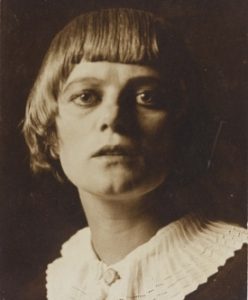
Tänzerin
Dir ist als ob ich schon gezeichnet wäre
Und auf der Totenliste stünde.
Es hält mich ab von mancher Sünde.
Wie langsam ich am Leben zehre.
Und ängstlich sind oft meine Schritte,
Mein Herz hat einen kranken Schlag
Und schwächer wird’s mit jedem Tag.
Ein Todesengel steht in meines Zimmers Mitte.
Doch tanz ich bis zur Atemnot.
Bald werde ich im Grabe liegen
Und niemand wird sich an mich schmiegen.
Ach, küssen will ich bis zum Tod.
Emmy Hennings
(1885 – 1948)
Tänzerin
• fleursdumal.nl magazine
More in: Archive G-H, Archive G-H, Emmy Hennings, Hennings, Emmy, Performing arts
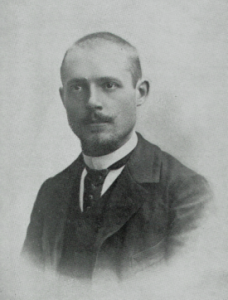
Paradis est plus fleuri que printemps.
Paradis est plus moissonneux qu’été.
Paradis est plus vendangeux qu’automne.
Paradis est si éternel qu’hiver.
Paradis est plus soleilleux que jour.
Paradis est plus étoilé que nuit.
Paradis est plus ferme que le ferme décembre.
Paradis est plus doux que le doux mois de mai.
Paradis est plus secret que jardin fermé.
Paradis est plus ouvert que champ de bataille.
Paradis est plus vieux que saint Jérôme.
Paradis est le céleste pourpris.
Paradis est plus capital que Rome.
Paradis est plus peuplé que Paris.
Paradis est désert plus que plaine en décembre.
Paradis est public et qui veut vient y boire.
Paradis est plus frais que l’aube fraîche.
Paradis est plus ardent que midi.
Paradis est plus calme que le soir.
Paradis est si éternel que Dieu.
Paradis est sanglant plus que champ de bataille.
Paradis est sanglant du sang de Jésus-Christ.
Paradis est royaume des royaumes.
Paradis est le dernier reposoir.
Paradis est le siège de Justice.
Paradis est le royaume de Gloire.
Paradis est plus beau qu’un jardin de pommiers.
Paradis est plus floconneux qu’hiver.
Paradis est plus sévère que mars.
Paradis est plus boutonneux qu’avril.
Paradis est plus bourgeonneux qu’avril.
Paradis est plus cotonneux qu’avril.
Paradis est plus embaumé que mai.
Paradis est plus accueillant qu’auberge.
Paradis est plus fermé que prison.
Paradis est demeure de la Vierge.
Paradis est la dernière maison.
Paradis est le Trône de Justice.
Veuille seulement Dieu que route y aboutisse.
Route que cheminons depuis dix-huit cents ans.
Paradis est auberge à la très belle enseigne.
Car c’est l’enseigne-ci : à la Croix de Jésus.
Cette enseigne éternelle est pendue à la porte.
Charles Péguy
(1873 - 1914)
Le Mystère des Saints-Innocents
(1912)
• fleursdumal.nl magazine
More in: # Classic Poetry Archive, Archive O-P, Archive O-P, Peguy, Charles, WAR & PEACE

The Lake Isle of Innisfree
I will arise and go now, and go to Innisfree,
And a small cabin build there, of clay and wattles made;
Nine bean-rows will I have there, a hive for the honey-bee,
And live alone in the bee-loud glade.
And I shall have some peace there, for peace comes dropping slow,
Dropping from the veils of the morning to where the cricket sings;
There midnight’s all a glimmer, and noon a purple glow,
And evening full of the linnet’s wings.
I will arise and go now, for always night and day
I hear lake water lapping with low sounds by the shore;
While I stand on the roadway, or on the pavements grey,
I hear it in the deep heart’s core.
William Butler Yeats
(1865-1939)
The Lake Isle of Innisfree
Photo: Alice Boughton, 1903
• fleursdumal.nl magazine
More in: Archive Y-Z, Archive Y-Z, Yeats, William Butler
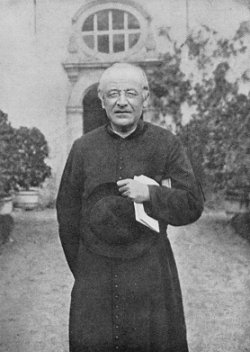
O! ‘t ruisen van het ranke riet
O! ‘t ruisen van het ranke riet!
o wist ik toch uw droevig lied!
wanneer de wind voorbij u voert
en buigend uwe halmen roert,
gij buigt, ootmoedig nijgend, neer,
staat op en buigt ootmoedig weer,
en zingt al buigen ‘t droevig lied,
dat ik beminne, o ranke riet!
O! ‘t ruisen van het ranke riet!
hoe dikwijls zat ik niet
nabij den stillen waterboord,
alleen en van geen mens gestoord,
en lonkte ‘t rimpelend water na,
en sloeg uw zwakke stafjes ga,
en luisterde op het lieve lied,
dat gijmij zongt, o ruisend riet!
O! ‘t ruisen van het ranke riet!
hoe menig mens aanschouwt u niet
en hoort uw’ zingend’ harmonij,
doch luistert nit en gaat voorbij!
voorbij alwaar hem ‘t herte jaagt,
voorbij waar klinkend goud hem plaagt;
maar uw geluid verstaat hij niet,
o mijn beminde ruisend riet!
Nochtans, o ruisend ranke riet,
uw stem is zo verachtelijk niet!
God schiep den stroom, God schiep uw stam,
God zeide: “Waait!…” en ‘t windtje kwam,
en ‘t windje woei, e, wabberde om
uw stam, die op en neder klom!
God luisterde… en uw droevig lied
behaagde God, o ruisend riet!
O neen toch, ranke ruisend riet,
mijn ziel misacht uw tale niet;
mijn ziel, die van den zelven God
‘t gevoel ontving, op zijn gebod,
‘t gevoel, dat uw geruis verstaat,
wanneer gij op en neder gaat:
o neen, o neen toch, ranke riet,
mijn ziel misacht uw tale niet!
O! ‘t ruisen van het ranke riet
weergalleme in mijn droevig lied,
en klagend kome ‘t voor uw voet,
Gij, die ons beiden leven doet!
o Gij, die zelf de kranke taal
bemint van enen rieten staal,
verwerp toch ook mijn klachte niet:
ik! arme, kranke, klagend riet!
Guido Gezelle
(1830 – 1899)
O! ‘t ruisen van het ranke riet
Uit: Vlaemsche dichtoefeningen 1857
• fleursdumal.nl magazine
More in: Archive G-H, Archive G-H, Gezelle, Guido, Guido Gezelle
Raymond Carvers wereldfaam berust op tweeënzeventig korte verhalen waarin zelden iets bijzonders gebeurt.
Carver beschrijft de gewone wederwaardigheden van gewone mensen in gewoon proza. Zijn grote talent is het naar boven brengen van het bijzondere, het beangstigende en het dramatische in al die gewoonheid.
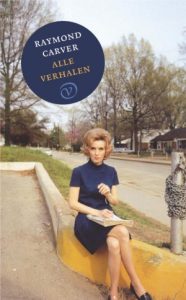
In zijn eigen woorden: ‘Het is mogelijk om in een gedicht of verhaal over alledaagse dingen en voorwerpen te schrijven in alledaagse maar dan wel precieze taal en die dingen – een stoel, het gordijn voor een raam, een vork, een steen, de oorbel van een vrouw – een immense, zelfs aangrijpende lading mee te geven.’
De verhalen van Carver vormen het schoolvoorbeeld van het korte verhaal als een slice of life: er is weinig plot, weinig expliciete voorgeschiedenis; hoe het afloopt krijg je ook nooit te lezen, maar de kennismaking met een volstrekt authentiek, onbekend leven, dat in zijn beperktheid toch een volledig beeld geeft, brandt de lezer in de ziel.
Carver-vertaler Sjaak Commandeur selecteerde speciaal voor deze uitgave 200 pagina’s nooit eerder vertaald werk. Een kleine weldaad is de grootste verzameling van Carvers werk die ooit in Nederland verscheen, met onder veel meer de klassiekers Wees alsjeblieft stil, alsjeblieft, Waar we over praten als we over liefde praten en Kathedraal.
Raymond Carver (1938–1988) brak in 1976 door met de publicatie van zijn verhaal ‘Will You Please Be Quiet, Please?’ en de gelijknamige bundel. Later volgden de verhalenbundels What We Talk About When We Talk About Love (1981) en Cathedral (1983). Carver groeide op in een gezin uit de lagere middenklasse. De uitdagingen en moeilijkheden die hij in die sociale klasse observeerde, vormen een centraal thema in zijn gehele oeuvre, evenals zijn eigen worstelingen in zijn huwelijk en met een alcoholverslaving. Carver is een van de meest karakteristieke stemmen uit de twintigste-eeuwse Amerikaanse literatuur.
Auteur: Raymond Carver
Een kleine weldaad.
Alle Verhalen
Vertaler: Sjaak Commandeur
Taal: Nederlands
Releasedatum: 01 september 2023
Bindwijze: Gebonden
ISBN 9789028232075
812 pagina’s
Prijs: € 45,00
• fleursdumal.nl magazine
More in: - Book News, - Bookstores, Archive C-D, Archive C-D, Carver, Raymond
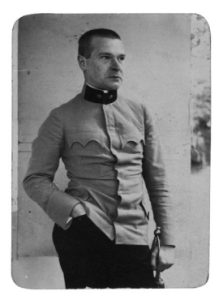
Abendländisches Lied
O der Seele nächtlicher Flügelschlag:
Hirten gingen wir einst an dämmernden Wäldern hin
Und es folgte das rote Wild, die grüne Blume und der lallende Quell
Demutsvoll. O, der uralte Ton des Heimchens,
Blut blühend am Opferstein
Und der Schrei des einsamen Vogels über der grünen Stille des Teichs.
O, ihr Kreuzzüge und glühenden Martern
Des Fleisches, Fallen purpurner Früchte
Im Abendgarten, wo vor Zeiten die frommen Jünger gegangen,
Kriegsleute nun, erwachend aus Wunden und Sternenträumen.
O, das sanfte Zyanenbündel der Nacht.
O, ihr Zeiten der Stille und goldener Herbste,
Da wir friedliche Mönche die purpurne Traube gekeltert;
Und rings erglänzten Hügel und Wald.
O, ihr Jagden und Schlösser; Ruh des Abends,
Da in seiner Kammer der Mensch Gerechtes sann,
In stummem Gebet um Gottes lebendiges Haupt rang.
O, die bittere Stunde des Untergangs,
Da wir ein steinernes Antlitz in schwarzen Wassern beschaun.
Aber strahlend heben die silbernen Lider die Liebenden:
Ein Geschlecht. Weihrauch strömt von rosigen Kissen
Und der süße Gesang der Auferstandenen.
Georg Trakl
(1887 – 1914)
Abendländisches Lied
• fleursdumal.nl magazine
More in: Archive S-T, Archive S-T, Trakl, Georg, Trakl, Georg
English poet Estill Pollock’s new collection is an ARK built to weather the flood of 21st century life.
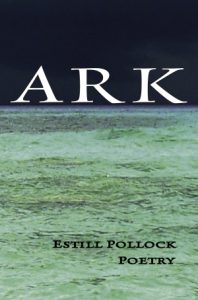 “I have nothing left / To offer, except this poem,” Estill Pollock declares around the midpoint of his new collection ARK, and for anyone else this might seem an apology or lament; but Pollock’s poems encompass multitudes, and offer the reader entire worlds. His title of course suggests both a means of safety and sanctuary (the title of one section here), as well as a repository of sacred texts, and both are apt descriptions for this volume.
“I have nothing left / To offer, except this poem,” Estill Pollock declares around the midpoint of his new collection ARK, and for anyone else this might seem an apology or lament; but Pollock’s poems encompass multitudes, and offer the reader entire worlds. His title of course suggests both a means of safety and sanctuary (the title of one section here), as well as a repository of sacred texts, and both are apt descriptions for this volume.
His hierophantic language demands much from the reader, but rewards in equal measure, and pleasure. His scope ranges over time and space, “in data streams / Of stars,” from “Neanderthals in Paris” to “AI execution codes” and “Cryptocurrency blockchain” carrying us over rising tides of (literal) water and war and all manner of floods that threaten to engulf us. A long account of “London in those times / Of empire” makes up much of the middle section; and even though it has been decades since he left his native America he devotes specific attention to its problematic history, and present. “Mason-Dixon” recounts the Original Sin of slavery, while more recently he observes how “American democracy eats / Its young—pockets emptied to Big Pharma / Big Banks, murder-cop trials, neo-Nazi podcast / Or demagogue variant QAnon.”
“Old worlds give up their dead,” he observes, “a skull / In tidal mud, looted barrows, souvenirs / Of species an archived fidelity, as though / We were disappearing from our own lives.” But Pollock’s ARK is here to preserve us. “This is about everything, and nothing” – in which respect it perfectly resembles life.
Estill Pollock’s publications include Constructing the Human (Poetry Salzburg, 2001) and the book cycle Relic Environments Trilogy (Cinnamon Press, Wales, 2012). His recent poetry collections, ENTROPY (2021) and TIME SIGNATURES (2022), are published by Broadstone Books. He lives in Norfolk, England.
Ark
by Estill Pollock
Pub Date: 8/15/2023
Publisher: Broadstone Books
ISBN 978-1-956782-43-1
Binding: PAPERBACK
Pages: 92
Price: $ 26.00
• fleursdumal.nl magazine
More in: #Editors Choice Archiv, - Book News, - Bookstores, Archive O-P, Archive O-P
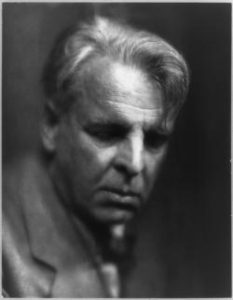
A Drinking Song
Wine comes in at the mouth
And love comes in at the eye;
That’s all we shall know for truth
Before we grow old and die.
I lift the glass to my mouth,
I look at you, and I sigh.
William Butler Yeats
(1865-1939)
A Drinking Song
• fleursdumal.nl magazine
More in: Archive Y-Z, Archive Y-Z, Yeats, William Butler

freda kamphuis
closest-up
• fleursdumal.nl magazine
More in: Archive K-L, Freda Kamphuis, Freda Kamphuis, Kamphuis, Freda, Natural history, Surrealisme
The title poem, “Because I Love You, I Become War,” is a poem of feminist genius, deserving to be in the pantheon of all-time brilliant poems!
Sascha A. Akhtar, author of #LoveLikeBlood
 Raw[ness] exudes from this collection of poems and poetics prose about love and war, both corporal and terrestrial. Whether speaking of “rose petals yawning like little girls, like the daughters I never bore,” or a California wildfire’s “yellowed skies” and “smoke taint,” even color is narrative in Eileen Tabios’ dexterous hands.
Raw[ness] exudes from this collection of poems and poetics prose about love and war, both corporal and terrestrial. Whether speaking of “rose petals yawning like little girls, like the daughters I never bore,” or a California wildfire’s “yellowed skies” and “smoke taint,” even color is narrative in Eileen Tabios’ dexterous hands.
Eileen R. Tabios has released over 60 collections of poetry, fiction, essays, and experimental biographies from publishers in 11 countries and cyberspace. DOVELION: A FAIRY TALE FOR OUR TIMES (AC Books, 2021) is her first long- form novel. Her 2020 books include a short story collection, PAGPAG: The Dictator’s Aftermath in the Diaspora; a poetry collection, THE IN(TER)VENTION OF THE HAY(NA)KU (Marsh Hawk Press, 2019); and her third bilingual edition (English/Thai), INCULPATORY EVIDENCE: Covid-19 Poems.
Her award-winning body of work includes invention of the hay(na)ku, a 21st century diasporic poetic form, and the MDR Poetry Generator that can create poems totaling theoretical infinity, as well as a first poetry book, Beyond Life Sentences, which received the Philippines’ National Book Award for Poetry. Translated into 11 languages, she also has edited, co-edited or conceptualized 15 anthologies of poetry, fiction and essays. Her writing and editing works have received recognition through awards, grants and residencies.
Because I love you, I become war
Poems & Uncollected Poetics Prose
by Eileen R. Tabios
Pub Date: 5/30/2023
Publisher: Marsh Hawk Press, Inc.
ISBN-10 : 099865826X
ISBN-13 : 978-0998658261
Binding: Paperback
Pages: 332
Price: $ 22.00
• fleursdumal.nl magazine
More in: #Editors Choice Archiv, - Book News, - Bookstores, Archive S-T, Archive S-T, Feminism, TRANSLATION ARCHIVE
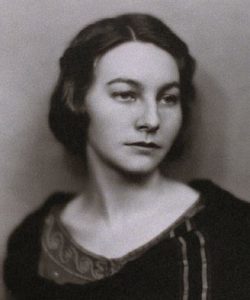
With Child
Now I am slow and placid, fond of sun,
Like a sleek beast, or a worn one:
No slim and languid girl—not glad
With the windy trip I once had,
But velvet-footed, musing of my own,
Torpid, mellow, stupid as a stone.
You cleft me with your beauty’s pulse, and now
Your pulse has taken body. Care not how
The old grace goes, how heavy I am grown,
Big with this loneliness, how you alone
Ponder our love. Touch my feet and feel
How earth tingles, teeming at my heel!
Earth’s urge, not mine,—my little death, not hers;
And the pure beauty yearns and stirs.
It does not heed our ecstacies, it turns
With secrets of its own, its own concerns,
Toward a windy world of its own, toward stark
And solitary places. In the dark,
Defiant even now, it tugs and moans
To be untangled from these mother’s bones.
Genevieve Taggard
(1894 – 1948)
With Child
• fleursdumal.nl magazine
More in: # Classic Poetry Archive, Archive S-T, Archive S-T
Finalist for the 2023 Pulitzer Prize Listed in The Boston Globe’s Best Poetry Books of 2022.
Longlisted for the PEN/Voelcker Award in PoetryAmerican Book Award-winning poet dg okpik’s second collection of poems, Blood Snow, tells a continuum story of a homeland under erasure, in an ethos of erosion, in a multitude of encroaching methane, ice floe, and rising temperatures.
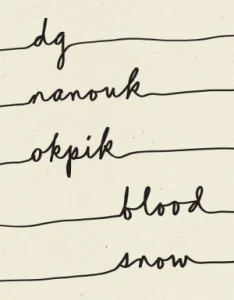 Here, in a true Inupiaq voice, dg okpik’s relationship to language is an access point for understanding larger kinships between animals, peoples, traditions, histories, ancestries, and identities.
Here, in a true Inupiaq voice, dg okpik’s relationship to language is an access point for understanding larger kinships between animals, peoples, traditions, histories, ancestries, and identities.
Through an animist process of transfiguration into a Shaman’s omniscient voice, we are greeted with a destabilizing grammar of selfhood. Okpik’s poems have a fraught relationship to her former home in Anchorage, Alaska, a place of unparalleled natural beauty and a traumatic site of devastation for Alaskan native nations and landscapes alike. In this way, okpik’s poetry speaks to the dualistic nature of reality and how one’s existence in the world simultaneously shapes and is shaped by its environs.
dg nanouk okpik was born and spent much of her life in Anchorage, Alaska. She graduated from Salish Kootenai College with an AFA in Liberal Arts and Liberal Studies, and later attended the Institute of American Indian Arts, graduating with an AFA and a BFA in Creative Writing before receiving her MFA in Creative Writing from Stonecoast College. okpik has won the Truman Capote Literary Award, the May Sarton Award, and an American Book Award for her first book, Corpse Whale (University of Arizona Press, 2012).
Blood Snow
by Dg Nanouk Okpik
Publisher: Wave Books
Publish Date: October 18, 2022
Pages 96
Language: English
Paperback
EAN/UPC: 9781950268634
BISAC Categories:
Native American
Women Authors
Price $18.00
• fleursdumal.nl magazine
More in: #Archive Native American Library, #Editors Choice Archiv, #Modern Poetry Archive, - Book News, - Bookstores, Archive O-P, Archive O-P
Thank you for reading Fleurs du Mal - magazine for art & literature